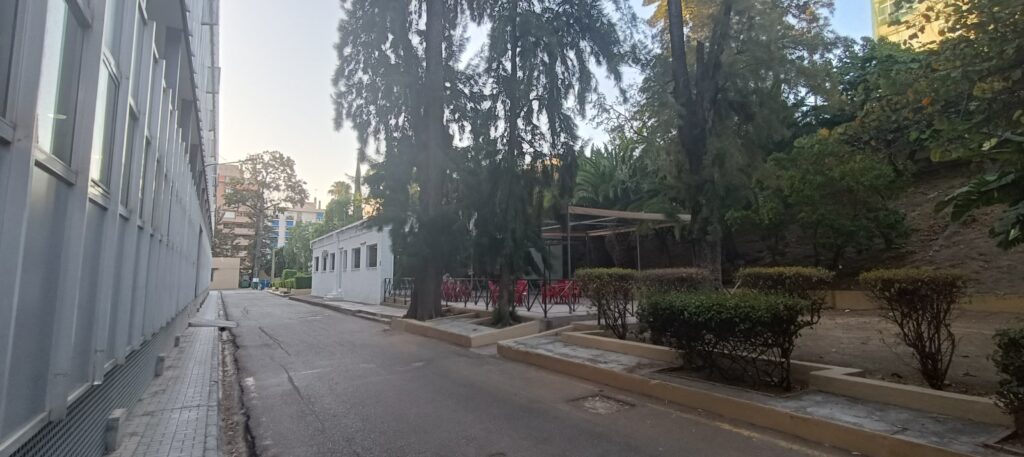Hospital Civil in Málaga, established in 1489, is a historic medical institution with over 500 years of service. Originally founded to care for the poor, it has evolved into a key centre for healthcare and education in the city, offering treatment for a variety of serious and non-serious conditions. Inspired by Paris’s Lavoisier Hospital, it became Spain’s second public hospital, reflecting a commitment to universal healthcare well before it became widespread. The current facility, in use since 1862, has been a cornerstone of Málaga’s healthcare system, supported by local benefactors and renowned medical professionals.
Modernised several times, the hospital still retains a sense of its historic past as you walk through its corridors.
The hospital is located at:
Hospital Civil
Avenida de Barcelona, 5,
29009 Málaga, Spain.
Google Maps Location
Parking:
The hospital has a great parking space, which is well managed and open 24 hours. Most of the parking is shaded under the trees, and there are staff looking after the area. The cost is only €1.50 per day or €16 for a week if you need to visit regularly. There is also parking on the road outside for free, but this can be tricky to find. The best place to park is here.

Cafeteria:
The hospital has its own cafeteria, which is very good and open to both patients and the public alike. It offers a menu del día for lunch, as well as breakfast and snacks in the evening.
If you fancy having breakfast nearby, there’s a secret café just around the corner that only opens in the morning. It’s a favourite spot for the medical staff to enjoy their café con leche and pitufo! It’s definitely worth a try. You can find it here

Café Oña:
Situated here, Café Oña is very close to the hospital and offers hot and cold food all day long, from 7:30 am until 11:30 pm. It can be a welcome break for families visiting loved ones who are being treated in the hospital, or if you have a long wait between appointments.
Last but not least, if you need to attend the hospital, don’t forget to bring all your medical documents and appointment sheets. Although Spanish doctors generally have a good level of English, it’s best to bring a translator with you if you don’t speak Spanish.


